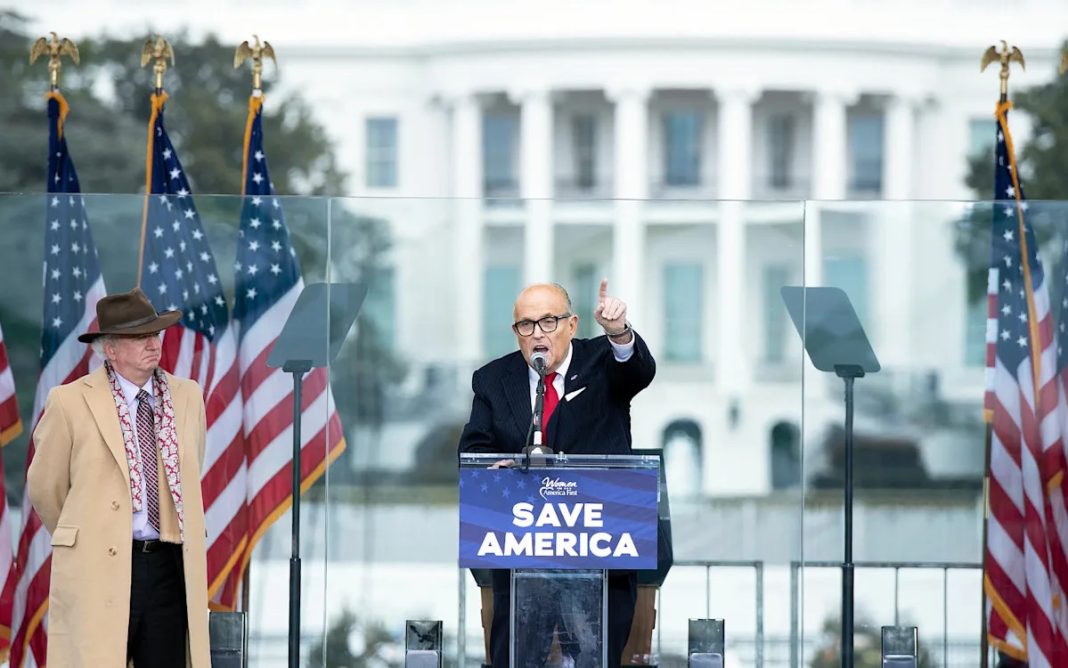When Donald Trump commuted the sentence for disgraced former Republican Rep. George Santos, the president no doubt realized the move would generate some controversy, but ultimately he didn’t care. Similarly, when he pardoned Changpeng Zhao, the founder of the crypto exchange Binance who helped finance the president’s stablecoin and put money in the Trump family’s pockets, Trump should’ve known it’d create a scandal (even though he’s denied knowing anything about it). He did it anyway.
In a normal political environment, this would ordinarily be about the time when a president, mindful of the circumstances, might steer clear of pardon abuses for a while.
We are not, however, in a normal political environment.
Last week, for example, Trump pardoned former Tennessee House Speaker Glen Casada and his former chief of staff, Cade Cothren, both of whom were convicted on corruption charges that involved wire fraud and attempted money laundering. It was the latest installment in an ugly series: If you’re a Republican official convicted of corruption, your odds of receiving clemency from the incumbent president are roughly 100%.
But just as the political world processed this abuse, Trump took another big step down the same outrageous path. NBC News reported:
President Donald Trump has pardoned Rudy Giuliani and scores of others accused of involvement in the effort to overturn the 2020 presidential election, Trump’s pardon attorney said late Sunday. Ed Martin posted a proclamation on X, which says Giuliani and scores of others will be pardoned for alleged activities linked to the 2020 election. Martin was replying to his own X message from May in which he said ‘No MAGA left behind.’
It’s not altogether clear when the undated paperwork was signed, but this was disclosed to the public via social media over the weekend.
In all, 77 people who were involved in the Republican scheme to overturn the 2020 election results and keep Trump in power despite his defeat received pardons, and the list features a great many familiar names: Mark Meadows, Kenneth Chesebro, John Eastman, Sidney Powell, Boris Epshteyn, et al. A Politico report noted that “Giuliani, Eastman and Powell were among those identified by former special counsel Jack Smith as Trump’s co-conspirators, though he never brought charges against them.”
“I, DONALD J. TRUMP, do hereby grant a full, complete, and unconditional pardon to all United States citizens for conduct relating to the advice, creation, organization, execution, submission, support, voting, activities in, or advocacy for or of any slate of presidential electors … in connection with the 2020 Presidential Election,” the proclamation read.
The pardons also referred to “any conduct relating to their efforts to expose voting fraud” in the 2020 race, despite Team Trump’s failure to actually find any meaningful examples of voter fraud in the 2020 race.
As a practical matter, the pardons are largely symbolic: Of the 77 beneficiaries in this batch of pardons, none is facing federal criminal charges related to the scheme to overturn Trump’s defeat. The president, in other words, came to the aid of those already in the clear — at least as far as federal law enforcement is concerned.
So why bother? By all appearances, it is the latest in a series of moves intended to deliver a political message from the White House to the nation: Those who stand with Trump and assist in his schemes need not worry about federal legal consequences.
In his first term, Trump effectively wielded his pardon and commutation power as a corrupt weapon, rewarding loyalists, completing cover-ups, undermining federal law enforcement and doling out favors to the politically connected, resulting in some of the most controversial pardons in American history. Many of these actions, however, transpired after his 2020 election defeat — when it seemed as if his political career was over and he no longer had to concern himself with consequences.
But in the first year of his second term, it appears Trump is no longer concerned about appearances or the pretense of propriety. He’s corrupting the process; he seems to know he’s corrupting the process; he must know that we know he’s corrupting the process; and he’s doing it anyway.
On the first day of his second term, Trump issued roughly 1,500 pardons and commuted the sentences of 14 Jan. 6 criminals, including violent felons who were in prison for assaulting police officers. A few days later, he kept going, pardoning 23 anti-abortion rights activists, seemingly unconcerned about their guilt. That was soon followed by a pardon for former Gov. Rob Blagojevich, a man synonymous with corruption in Illinois politics, whom Trump saw as an ally.
In early March, he pardoned a Tennessee Republican who was just two weeks into a 21-month sentence for his role in a campaign finance fraud scheme. In late March, he pardoned a prominent campaign donor. (Asked to defend the latter, the president struggled in unintentionally hilarious ways.) A month later, he pardoned another Republican donor, as well as a Trump-aligned former Las Vegas City Council member. In the weeks and months that followed, the list just kept growing.
Traditionally, presidents have issued pardons and commutations to right a wrong or to protect those who have been falsely accused of wrongdoing. In 2025, if Trump sees someone as an ally, that’s apparently all he needs to know.
For all the GOP hysterics during the Biden era about a “two-tiered” system of justice, the White House has gone out of its way to create the very dynamic Republicans claimed to be against.
This post updates our related earlier coverage.
This article was originally published on MSNBC.com

